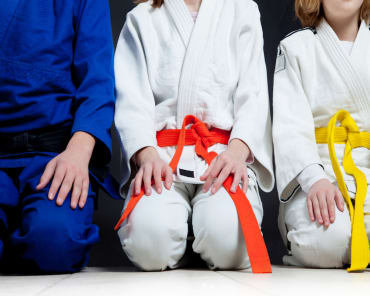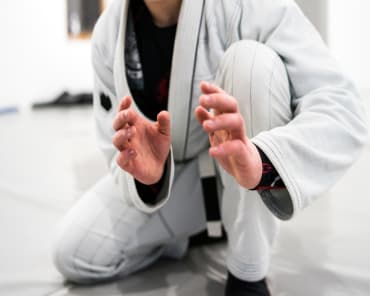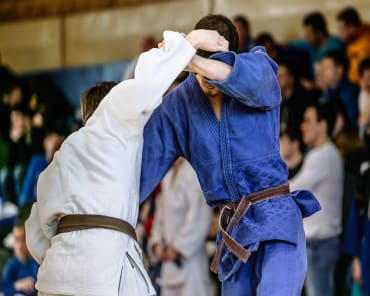Every Jiu-Jitsu practitioner, regardless of rank or experience, will encounter plateaus during their training journey. These periods of stagnation can be frustrating, leading to self-doubt and a decline in motivation. However, understanding that plateaus are a natural part of the learning process can help you push through them and continue to improve. In this guide, we’ll explore practical strategies for overcoming plateaus in Jiu-Jitsu, maintaining motivation, and unlocking your potential on the mats.
1. Acknowledge the Plateau
The first step in overcoming a plateau is acknowledging that it exists. Understand that every practitioner faces periods of slow progress, and it’s essential to recognize that this is a normal part of training. Instead of feeling discouraged, use this acknowledgment as a catalyst for change. Embrace the idea that plateaus are opportunities for growth rather than signs of failure.
2. Reflect on Your Training Routine
Take a moment to assess your current training routine. Are you consistently attending classes, or have you been skipping sessions? Are you focusing on the same techniques repeatedly without challenging yourself to learn new ones? Reflecting on your routine allows you to identify potential areas for improvement and make necessary adjustments.
Tips for evaluating your routine:
- Track Your Training: Keep a journal to log your training sessions, techniques learned, and feelings about your progress. This will help you identify patterns and areas needing attention.
- Seek Feedback: Don’t hesitate to ask your instructor or training partners for feedback on your techniques and overall performance. They may provide insights that can help you break through your plateau.
3. Set Clear, Achievable Goals
Setting specific and realistic goals can reignite your motivation and give you something to work towards. Instead of vague goals like “getting better,” aim for measurable objectives, such as mastering a particular technique, improving your guard, or increasing your sparring time.
Goal-setting tips:
- Break Down Goals: Divide larger goals into smaller, achievable milestones. This will make the process feel less overwhelming and allow you to celebrate progress along the way.
- Review and Adjust: Regularly review your goals and adjust them based on your progress. If a goal seems too ambitious or unattainable, modify it to ensure it remains achievable and motivating.
4. Diversify Your Training
One of the best ways to push past a plateau is to diversify your training regimen. Trying new techniques, attending different classes, or even cross-training in another martial art can provide fresh perspectives and stimulate your mind.
Ways to diversify your training:
- Explore Different Positions: Focus on areas where you feel less confident, whether it's guard passing, submissions, or takedowns. This will help you become a more well-rounded practitioner.
- Attend Workshops or Seminars: Participating in workshops led by different instructors can expose you to new techniques and training methods, providing fresh insights that could help you break through your plateau.
5. Incorporate Drilling into Your Routine
While sparring is essential for developing your Jiu-Jitsu skills, consistent drilling is equally important. Drilling techniques allows you to build muscle memory, refine your movements, and develop a deeper understanding of each technique.
Drilling tips:
- Focus on Fundamentals: Spend time working on basic techniques and positional drills. Mastering the fundamentals provides a strong foundation for advanced skills.
- Partner Up: Find a training partner who is also interested in improving. Work together to drill techniques and provide feedback to each other.
6. Stay Mentally Strong
Plateaus can take a toll on your mental state. Cultivating a strong mindset is crucial for overcoming challenges and maintaining motivation.
Mental strength strategies:
- Practice Mindfulness: Engage in mindfulness exercises such as meditation or deep breathing to help manage stress and stay focused during training.
- Visualize Success: Spend time visualizing your techniques and performance. This mental practice can help boost confidence and reinforce positive habits.
7. Get Adequate Rest and Recovery
Physical and mental fatigue can contribute to plateaus. Ensure you’re giving your body enough time to recover between training sessions.
Recovery tips:
- Prioritize Sleep: Aim for 7-9 hours of quality sleep each night to support recovery and performance.
- Incorporate Active Recovery: Engage in light activities such as yoga, swimming, or walking on rest days to promote recovery without overexerting yourself.
8. Connect with the Jiu-Jitsu Community
The Jiu-Jitsu community is incredibly supportive and can provide motivation during challenging times. Surrounding yourself with like-minded individuals can boost your morale and help you stay engaged.
Ways to connect:
- Find a Training Partner: Partner up with someone who shares similar goals. Training together can keep you accountable and motivated.
- Join Online Communities: Engage with online forums or social media groups dedicated to Jiu-Jitsu. Sharing experiences and tips with others can offer new perspectives and encouragement.
Conclusion
Plateaus are a natural part of the Jiu-Jitsu journey, but they don’t have to define your progress. By acknowledging the plateau, reflecting on your training routine, setting achievable goals, diversifying your training, and focusing on mental strength, you can push past these obstacles and continue to improve. Remember, every practitioner faces challenges, and it’s your resilience and determination that will ultimately shape your journey in Jiu-Jitsu. Embrace the process, stay motivated, and keep rolling—your next breakthrough is just around the corner!






